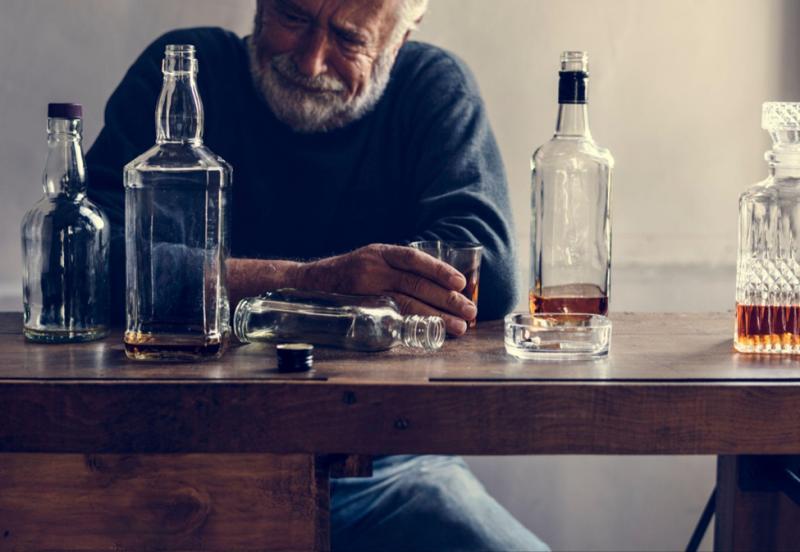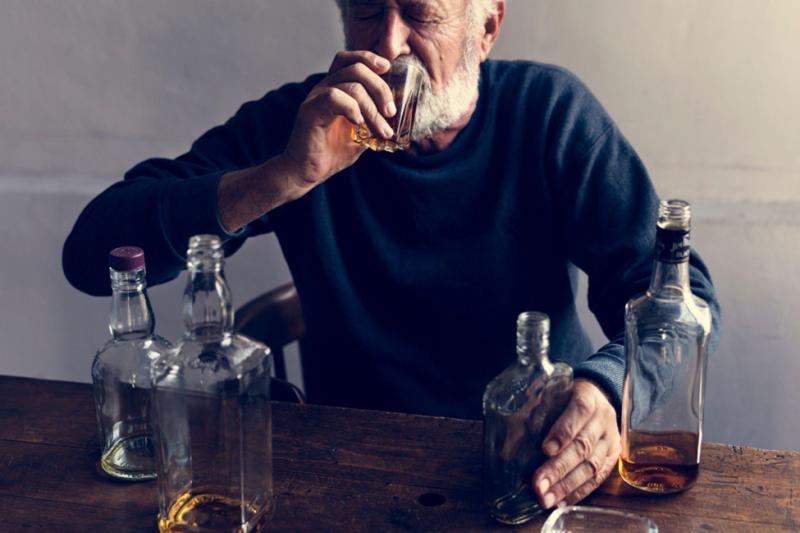How to Overcome Alcohol abuse in Older Adults
Do you or someone you know have a problem with alcohol abuse?
Millions of older adults struggle with alcohol abuse, but there is help. This guide provides information on the causes and effects of elderly adults addiction and advice on overcoming it.
You don't have to face or meet the challenge alone. With the proper support, you can overcome alcohol abuse and improve your quality of life.
Stay with us to understand how older adults can triumph over alcohol abuse.

Elderly Alcoholism
Alcohol abuse is a growing problem among older adults. According to the National Institute on Alcohol Abuse and Alcoholism (NIAAA), about 7% of adults over 65 struggle with alcohol abuse. That's 3.8 million people in the United States alone.
Many factors can contribute to alcohol abuse in older adults. For some, it may be due to social isolation or loneliness. Others may use alcohol to cope with losing a spouse or other loved ones.
Still, others may be struggling with medical problems or taking medications that interact negatively with alcohol.
Whatever the cause, alcohol abuse can have serious consequences. It can lead to chronic health conditions, financial difficulties, mood disorders, and social isolation. It can also increase the risks of accidents and injury because it leads to distraction.
What Causes Bad Drinking Habits Later In Life?
There are several reasons why alcohol abuse is more common in older adults.
For one, many seniors are retired and have more free time on their hands. This can lead to boredom and loneliness, prompting them to drink.
In addition, older adults may be more likely to abuse alcohol if they're dealing with other issues, such as retirement, the death of a spouse, or chronic health problems.
These stressors can make it difficult to cope with everyday life, and alcohol may seem like an attractive way to escape.
The Signs And Symptoms Of An Elderly Alcoholic
If you're concerned that you or someone you know may be abusing alcohol, it's essential to be aware of the signs and symptoms.
Some common signs of older adults' alcohol abuse include:
- Excessive drinking than usual
- Hide drinking from family and friends
- Having trouble remembering what happened when drinking
- Drinking in the morning or early afternoon
- Slurred speech
- Impaired balance
- Bloodshot eyes
If you, by any chance, notice any of these signs, you must reach out for help. Because alcohol abuse is a harmful diseaes that can lead to severe consequences like liver disease, heart problems, and even death.
How Does Alcohol Abuse Impact Seniors?

Older adults with too much alcohol consumption may experience a variety of issues as a result. It can exacerbate existing severe health problems such as heart disease, diabetes, and high blood pressure, to name a few.
Alcoholism can cause memory loss, Falls, and other accidents. Plus, it may make it more challenging to live on your own and manage on your own. Last, alcohol abuse may harm your relationships.
Spending time with friends or relatives can be difficult if you're always drunk or hungover. You could also miss important occasions, such as birthdays and holidays.
Getting Help For Alcohol Use Disorder
If you're struggling with alcohol abuse, know you're not alone. There are a plenty of useful resources to help you overcome your problem.
Here are some useful tips to get you started:
Seek Out Counseling Or Therapy:
Talking to a therapist or a counselor can help you understand your drinking habits and find other ways to cope with stress.
Join A Support Group:
There are many support groups available for people struggling with alcohol abuse.
This can provide you with a sense of community and allow you to share your experiences with others who can understand what you're going through.
Cut Back On Drinking:
If you're not ready to give up alcohol completely, try cutting back on how much you drink alcohol.
This cannot be easy, but taking it one day at a time is essential.
Make Changes To Your Lifestyle:
Eating healthy, exercising daily, and getting enough sleep can help you reduce stress and resist the urge to drink.
Seek Professional Help:
If you're struggling to overcome substance abuse on your own, many professionals can help, such as alcohol addiction counselors and treatment centers.
No matter what way you choose, know that recovery is possible.
Alcoholism Can Always be Conquered
Alcohol abuse can plague anyone at any stage, but it is significantly damaging in older adults.
Older adults who are binge drinking are more likely to experience health problems, including liver damage and ulcers. They, as well, are more likely to suffer with depression and anxiety.
However, it is never too late to overcome alcohol abuse. Many treatment options are available, and many older adults can successfully recover from alcoholism with the help of family, friends, and professionals.
Recovery is always possible.
FAQs: Elderly Alcoholism
Is Alcoholism Worse In Older Adults?
Aging decreases tolerance to alcohol. Generally, older persons have less of an effect on their health regarding drinking.
The risk is increased by older adults falling into accidents due to drinking and driving.
How Much Is Too Much Alcohol For The Elderly?
Currently, the American Geriatric Society defines high-risk drinking as three to seven drinks a night during a heavy drinking alcohol event for adults aged 65 and up.
What Is The Expected Lifespan For An Alcoholic?
The average life expectancy for an alcoholic is about 15 years less than for a non-alcoholic.
What Is Age Group Most Affected By Alcohol Abuse?
The younger demographics are likelier to experience alcohol problems in their teens than older groups. However, all age groups are susceptible to developing an alcohol use disorder.
How Do I Know If My Elderly Parent Is An Alcoholic?
Older adults who abuse alcohol may become more withdrawn and isolate themselves from family and friends.
They may also suffer from memory loss, depression, anxiety, and financial difficulties.
If you're concerned that your elderly parent may be struggling with alcoholism, it's essential to seek professional help.
Get The Support You Need
If you're an elderly alcoholic, getting the support you need to stay safe and healthy is essential. No matter what your age, it is never too late to seek help to quit drinking. Don't suffer in silence; your doctor can help you find a treatment that works for you.
There are many treatment options available, and with the support of family and friends, you can overcome alcohol abuse and live a happy, healthy life. You can also contact Alcoholics Anonymous or other support groups for help.
You can overcome your alcoholism and live a healthy, sober life with the proper support.
More to Read:
Previous Posts:











